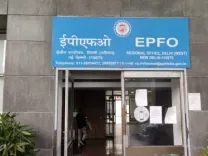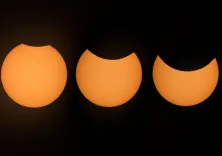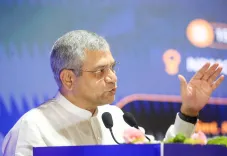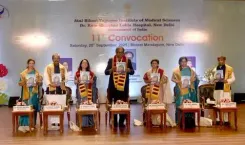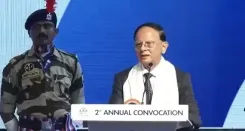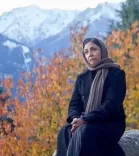Can India Lead the Charge for Climate Justice and Support Small-Scale Fisheries at the FAO Regional Meeting?
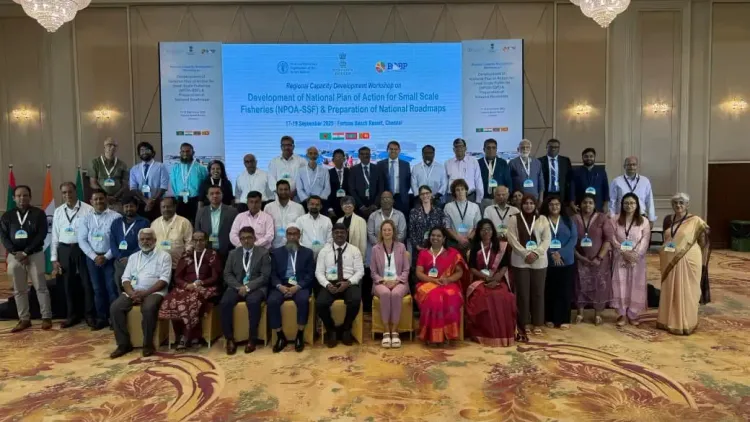
Synopsis
Key Takeaways
- India advocates for climate justice at the FAO meeting.
- The country seeks to protect small-scale fisheries from climate impacts.
- India is preparing National Plans of Action (NPOAs) for sustainable fisheries.
- FAO guidelines emphasize resource management and gender equality.
- Collaboration is essential for supporting vulnerable fishing communities.
Chennai, Sep 17 (NationPress) On Wednesday, India emphasized the need for climate justice and enhanced regional collaboration to protect small-scale fisheries, asserting that nations that have contributed the least to the climate crisis should not bear the heaviest burdens. In his speech at the opening session of a three-day regional conference focused on small-scale fisheries governance, Union Fisheries Secretary Abhilaksh Likhi stated that India is among the world’s lowest subsidizers of fisheries and is highly disciplined in sustainably managing marine resources.
The meeting, organized by the UN Food and Agriculture Organisation (FAO) and the Bay of Bengal Programme Inter-Governmental Organisation (BOBP-IGO), is taking place in Chennai from September 17 to 19.
"The principles of climate justice must be upheld. Those who have contributed the least to this issue should not be asked to pay the highest price. In India, the fisheries sector is predominantly driven by small-scale fishers who are vital to the local economy, food security, nutrition, and cultural heritage," Likhi remarked.
This capacity-building event aims to assist Bay of Bengal nations in developing National Plans of Action (NPOAs) for small-scale fisheries. Likhi highlighted that extreme weather events, coastal erosion, and rising sea temperatures are already depleting fish stocks and threatening vulnerable fishing communities.
"The most disadvantaged fishers lack the means to adapt without international assistance," he noted, calling for regional collaboration on early warning systems, climate adaptation, and joint research initiatives.
India is also preparing its own NPOAs for both inland and marine fisheries, with support from FAO and BOBP-IGO, aiming for inclusive and climate-resilient growth.
Highlighting India's achievements, Likhi stated that fish production has doubled over the last decade, reaching 195 lakh tonnes for 2024–25.
The Pradhan Mantri Matsya Sampada Yojana (PMMSY), with an investment of Rs 20,050 crore, has empowered women, provided insurance to 31 lakh fish farmers, and established modern infrastructure.
Dr. Lena Maria Westlund, FAO’s International Fisheries Analyst, emphasized that small-scale fisheries account for nearly half of Asia’s fish production and employ over 46 million individuals.
She mentioned that FAO’s guidelines prioritize resource management, gender equality, value chains, and climate resilience.
Dr. P. Krishnan, Director of BOBP-IGO, reiterated the organization’s commitment to assisting member countries in formulating tailored action plans. The meeting is attended by officials, scientists, and representatives from the fishing communities of India, Sri Lanka, Bangladesh, and the Maldives.

